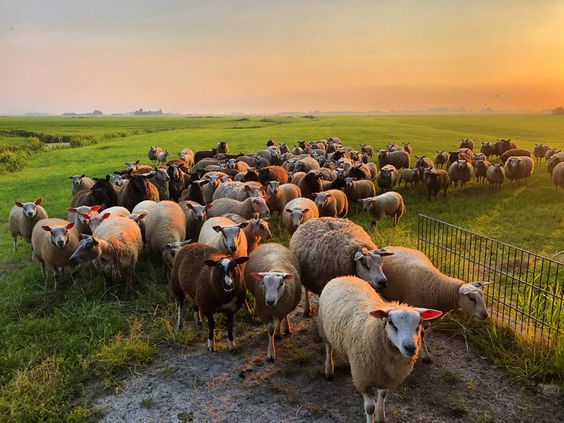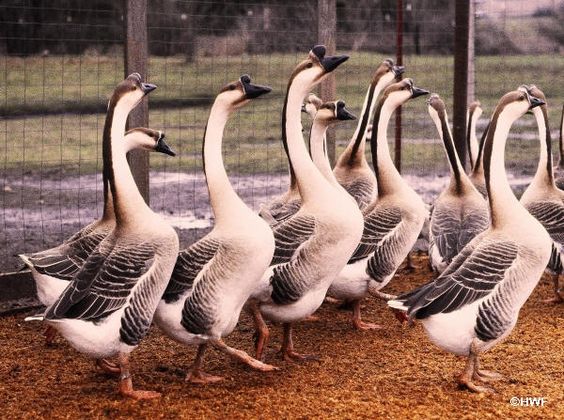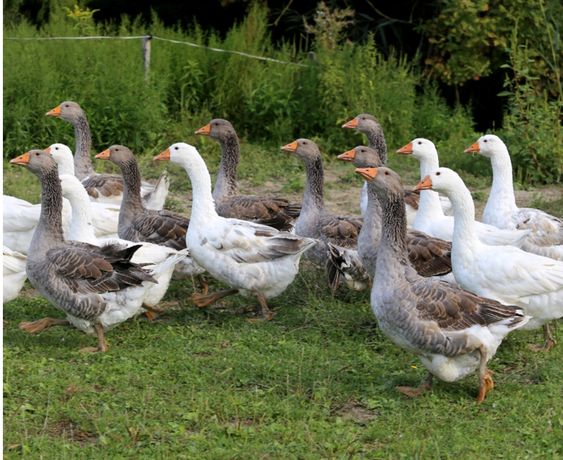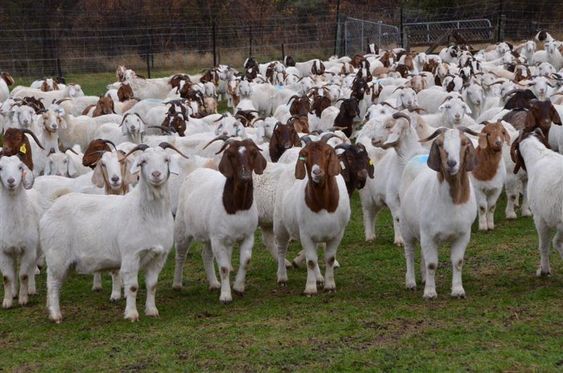Sheep Industry Challenges: Disease Management and Market Strategies
The sheep industry is a cornerstone of agricultural economies worldwide, offering numerous benefits that span economic, environmental, and social domains. Sheep farming, which includes the production of wool, meat, and milk, has been practiced for thousands of years, evolving significantly with advancements in technology and farming practices.
Overview of the Sheep Industry
The sheep industry is a multifaceted sector that includes wool production, meat (lamb and mutton), and milk production. This industry is prominent in temperate climates and plays a crucial economic role in various regions, including Australia, New Zealand, the United Kingdom, and the United States. Each aspect of the sheep industry contributes uniquely to its overall significance.
Wool Production
Wool is a primary product of the sheep industry, renowned for its versatility and value. It is utilized in a myriad of applications, from everyday clothing and high-fashion garments to home textiles such as carpets and upholstery. Wool’s natural properties, including its insulation and moisture-wicking abilities, make it a preferred material for both functional and luxury items. The wool industry has a robust global market, with major wool-producing countries like Australia and New Zealand exporting significant quantities. This export-driven aspect supports international trade and contributes to the economic stability of wool-producing regions. Innovations in wool processing and sustainable practices are continually enhancing the value and market appeal of wool products.
Meat Production
Sheep meat, which includes lamb and mutton, is another vital component of the sheep industry. Lamb, known for its tender texture and delicate flavor, is a popular choice in various cuisines worldwide, often featured in gourmet dishes and traditional meals. Mutton, on the other hand, offers a stronger, more robust flavor and is valued in dishes that benefit from its distinct taste. The demand for sheep meat spans diverse markets, with consumption patterns varying by region and culture. The industry’s focus on quality and sustainable practices helps meet consumer preferences and maintains a stable market presence.
Milk Production
Sheep milk, though less common compared to cow or goat milk, is gaining recognition for its rich flavor and high nutritional content. It is increasingly used to produce specialty dairy products such as artisanal cheeses and yogurts. Sheep milk is valued for its higher fat and protein content, making it a nutritious option for health-conscious consumers. The growing popularity of sheep milk reflects a trend towards diverse and premium dairy products, catering to niche markets and expanding the industry’s reach in the dairy sector.
Benefits of the Sheep Industry
Economic Benefits
The sheep industry plays a crucial role in the economy by generating substantial employment opportunities and income streams. It provides jobs not only for farmers but also for workers in related fields such as wool and meat processing, logistics, and marketing. The economic contribution extends beyond primary production, encompassing value-added activities such as wool processing into textiles and meat preparation for retail and export. Countries with significant sheep farming operations benefit from wool and meat exports, which contribute to trade balances and national income.
Environmental Benefits
When managed with sustainable practices, sheep farming can have notable positive effects on the environment. Grazing sheep play an essential role in vegetation management, which can help control invasive plant species and reduce the risk of wildfires by keeping underbrush in check. Their grazing also promotes the regeneration of native plant species, contributing to improved biodiversity. Furthermore, integrating sheep into crop rotation systems enhances soil health by contributing natural fertilization through their manure, which enriches soil fertility and reduces the need for synthetic fertilizers. This practice supports sustainable agriculture by promoting soil conservation and reducing environmental impact. Sheep farming, therefore, can be a component of integrated land management strategies that benefit both the environment and agricultural productivity.
Social Benefits
The sheep industry also provides significant social benefits, particularly in rural areas. It supports rural development by sustaining traditional farming practices and preserving cultural heritage in regions where sheep farming has long been a way of life. This industry fosters community cohesion by creating local employment opportunities and encouraging the continuation of farming traditions that are integral to many rural communities. Moreover, the social fabric of these communities is enriched through events such as sheep fairs and agricultural shows, which celebrate local culture and foster social interaction. The continuation of sheep farming practices helps maintain the historical and cultural identity of rural areas, reinforcing community pride and stability.

Goals of the Sheep Industry
Increasing Productivity
A fundamental goal of the sheep industry is to boost productivity across all areas of production, including wool, meat, and milk. Enhancing productivity involves several strategies, such as refining breeding techniques to produce animals with superior traits like higher wool yields, better meat quality, and increased milk production. Advances in genetic research and selective breeding are crucial in this regard, allowing farmers to develop breeds that are more efficient and resilient.
Enhancing Sustainability
Sustainability is a central focus for the sheep industry, addressing the need to minimize environmental impact while ensuring long-term viability. Efforts to enhance sustainability include implementing resource-efficient practices that reduce water and energy consumption, as well as adopting waste management strategies to minimize the environmental footprint of sheep farming. Improving animal welfare is also a crucial component, with goals centered on ensuring humane treatment, providing adequate housing and healthcare, and maintaining high standards of animal husbandry. Sustainable farming practices, such as rotational grazing and integrated pest management, contribute to soil health and biodiversity, promoting environmental stewardship. By aligning production practices with sustainability principles, the sheep industry can reduce its ecological impact and support broader conservation efforts.
Expanding Market Access
Expanding market access is vital for the growth and success of the sheep industry. This involves identifying and exploring new markets for wool, meat, and dairy products to diversify income sources and reduce dependency on existing markets. Enhancing the value chain through improved marketing strategies, better distribution networks, and value-added products can also contribute to market expansion. By investing in market research and consumer trends, the industry can tailor products to meet diverse demands and preferences. Additionally, building relationships with international buyers and participating in global trade initiatives can open new opportunities for exports, driving industry growth and increasing profitability.
Ideas for Improving the Sheep Industry
Embracing Technology
Embracing modern technology offers transformative potential for the sheep industry, driving improvements in efficiency, productivity, and overall farm management. Precision agriculture, for example, utilizes GPS tracking and data analytics to optimize grazing patterns and monitor flock health, leading to better resource management and reduced operational costs. Automated feeding systems can ensure that sheep receive consistent and balanced nutrition, improving growth rates and wool quality while reducing labor requirements. Advanced breeding techniques, such as genetic selection and genomics, allow for the development of sheep breeds with enhanced traits, including disease resistance and higher yields of wool and meat.
Sustainable Practices
Adopting sustainable practices is crucial for the long-term viability and environmental responsibility of the sheep industry. Rotational grazing, for instance, involves systematically moving sheep between pastures to prevent overgrazing, promote soil health, and support plant regeneration. This method can enhance pasture productivity and biodiversity while reducing soil erosion. Organic farming practices, including the use of natural fertilizers and pest control methods, can meet growing consumer demand for ethically produced and environmentally friendly products.
Diversification
Diversification within the sheep industry can help mitigate risks and increase profitability by broadening product offerings and exploring new markets. For example, farmers can develop value-added products like specialty wool garments, which cater to niche markets and command higher prices. Sheep milk cheeses and other dairy products offer additional revenue streams and cater to growing demand for unique and premium dairy items.







